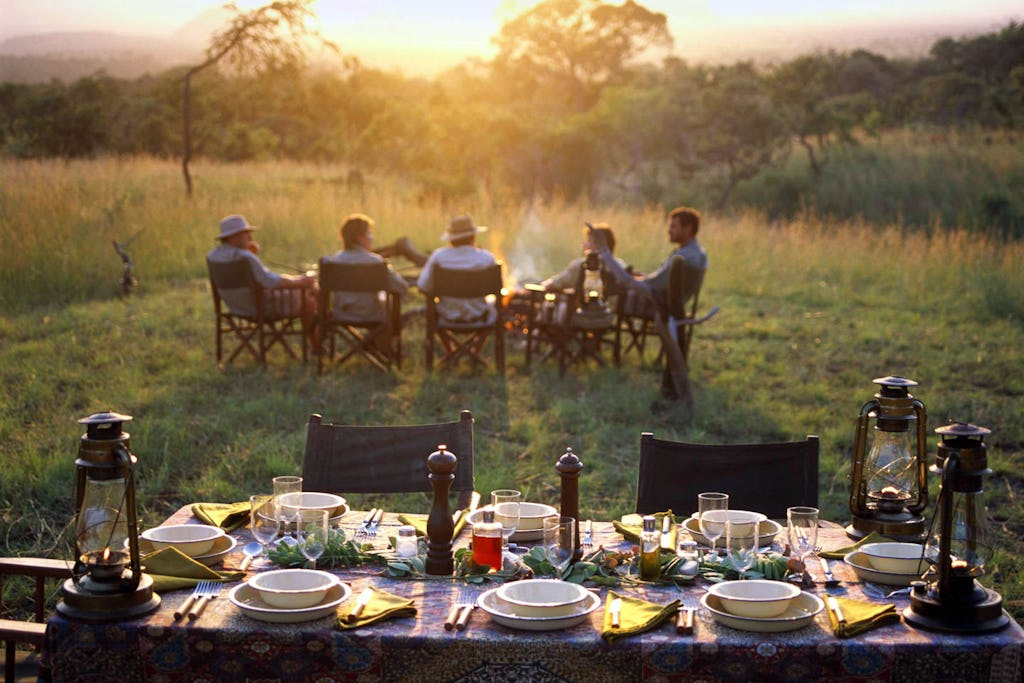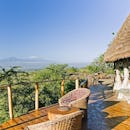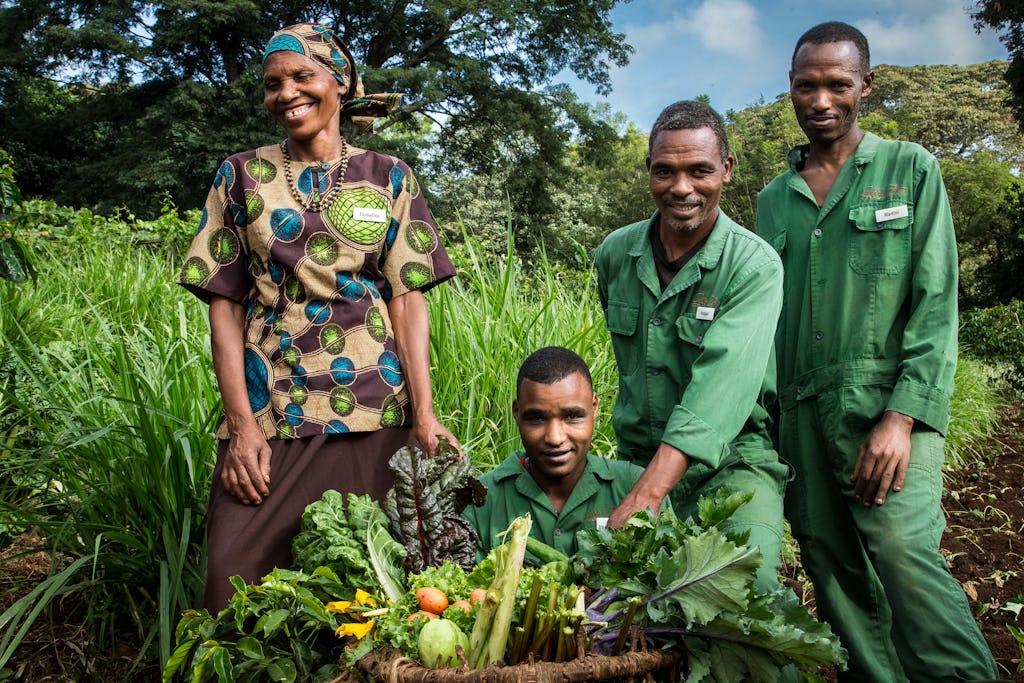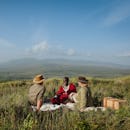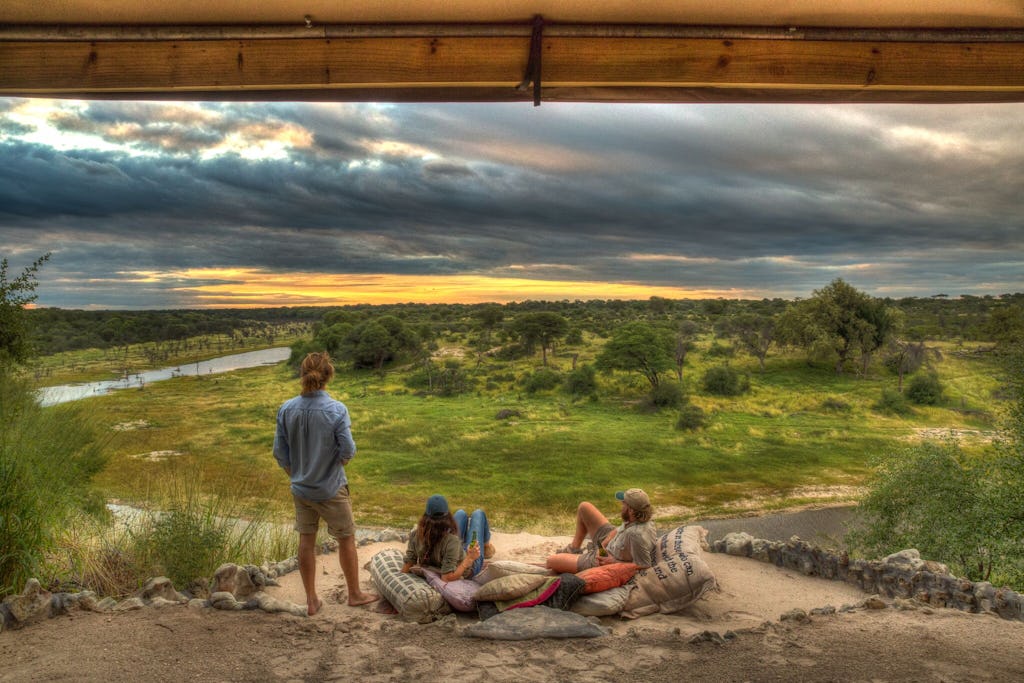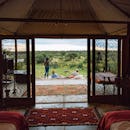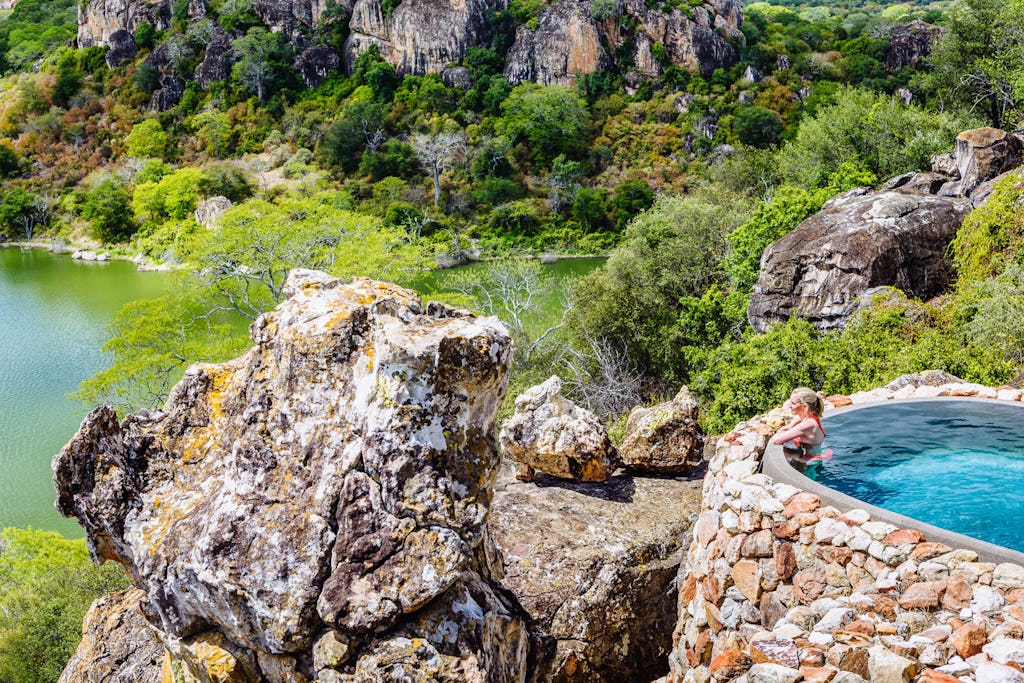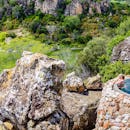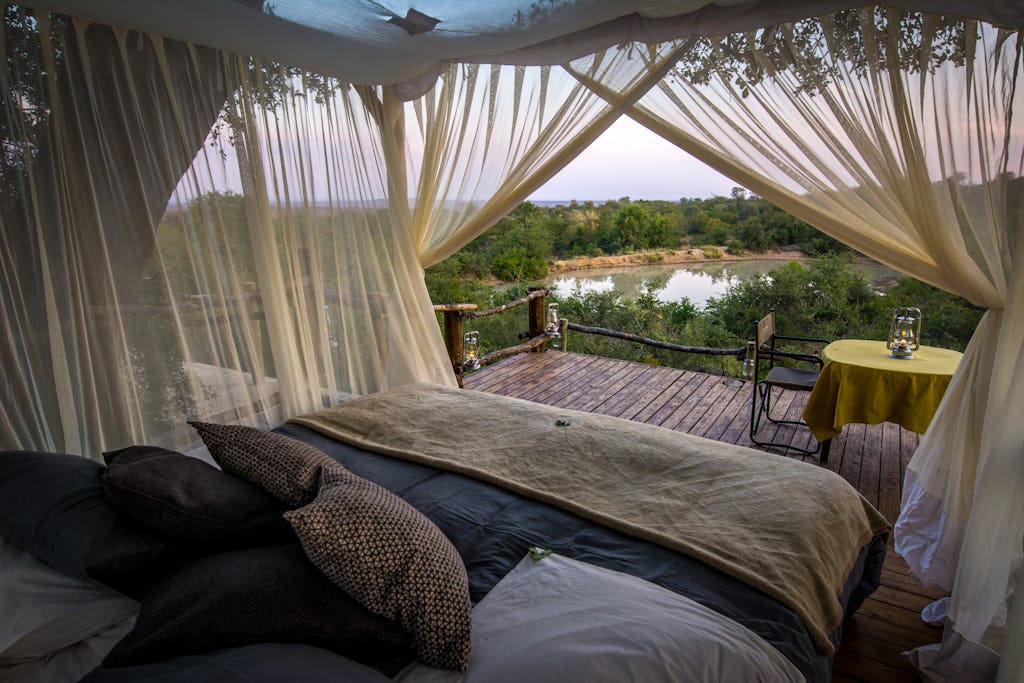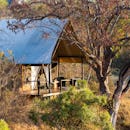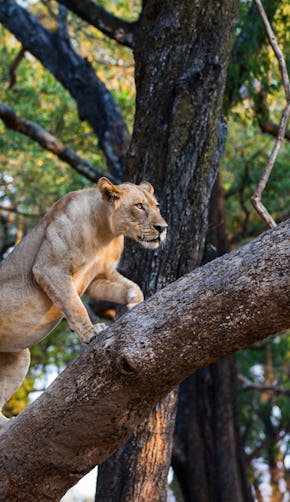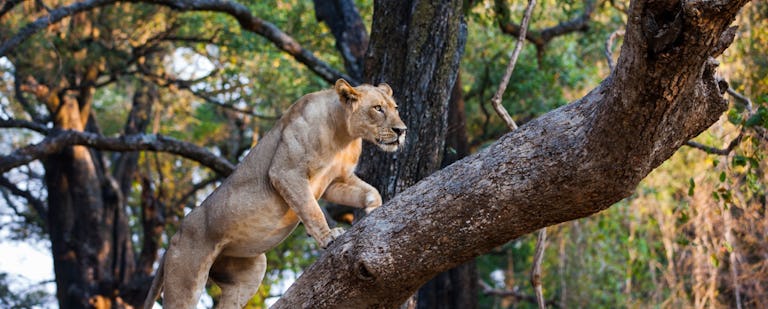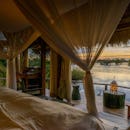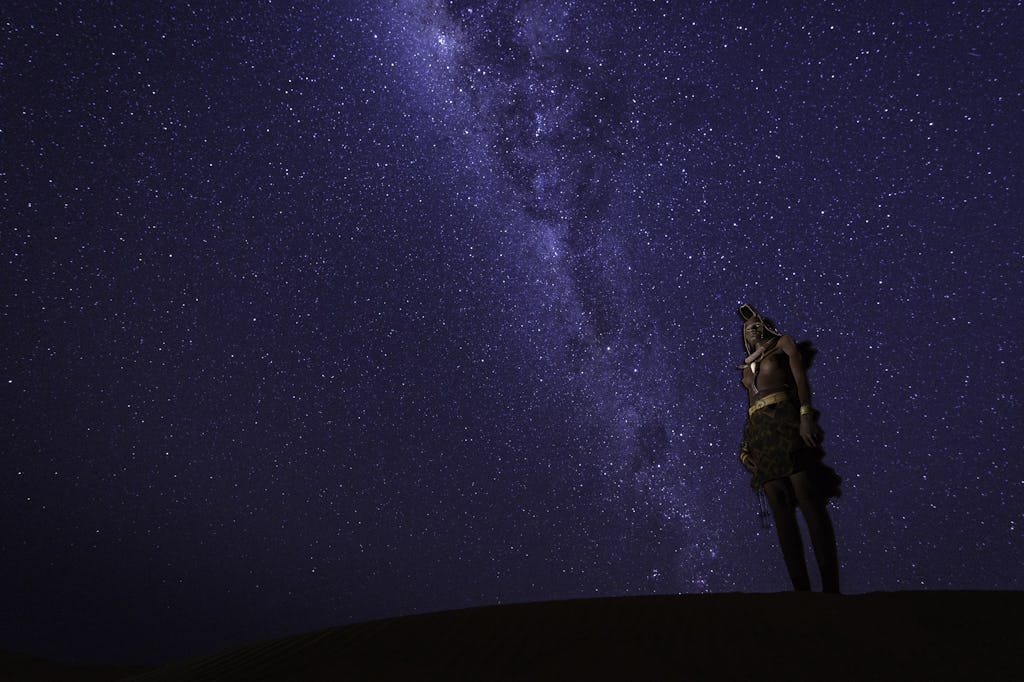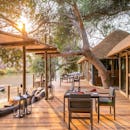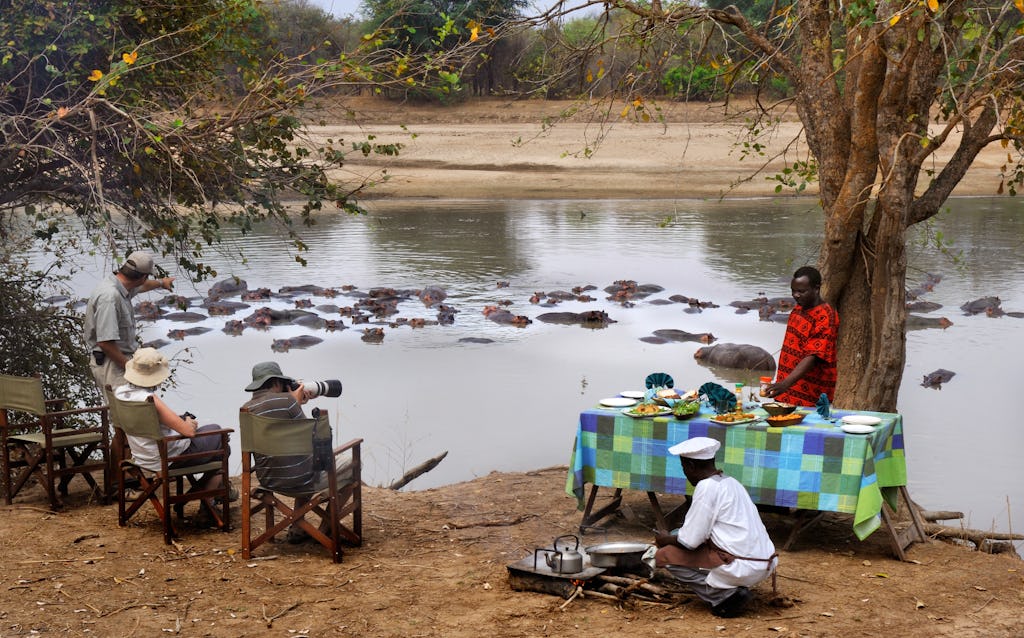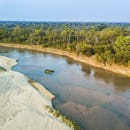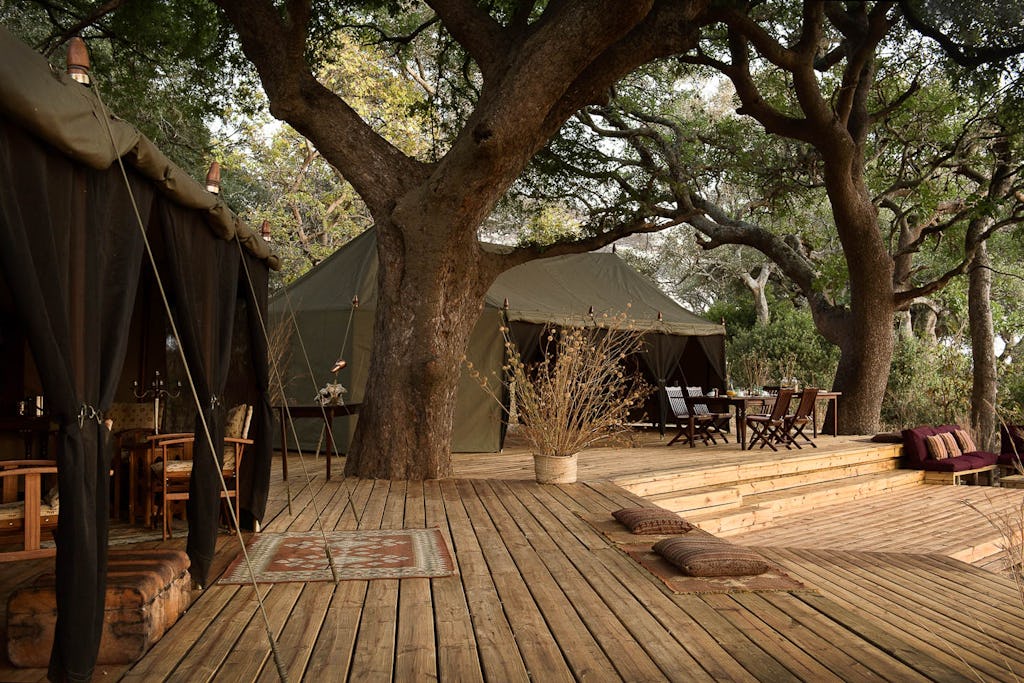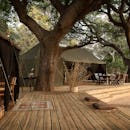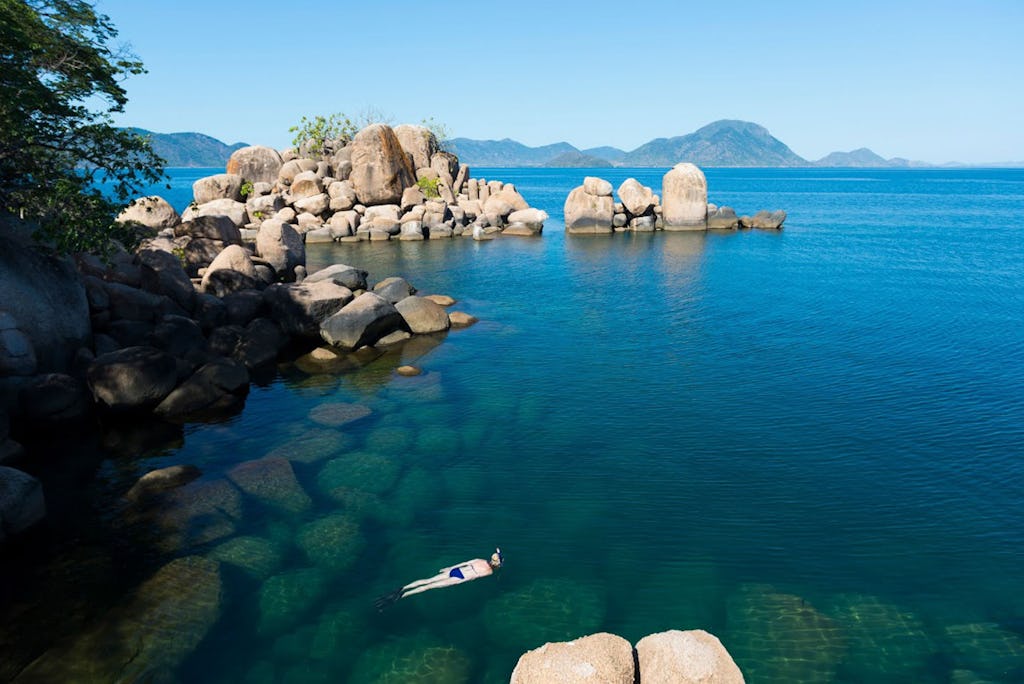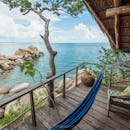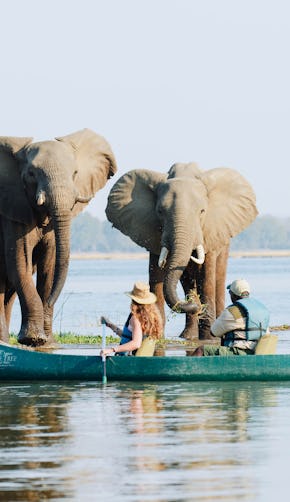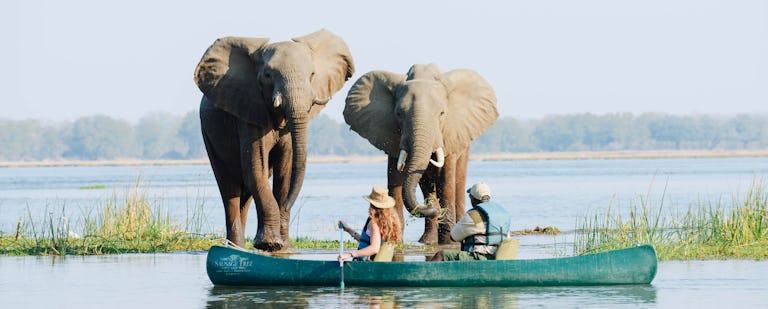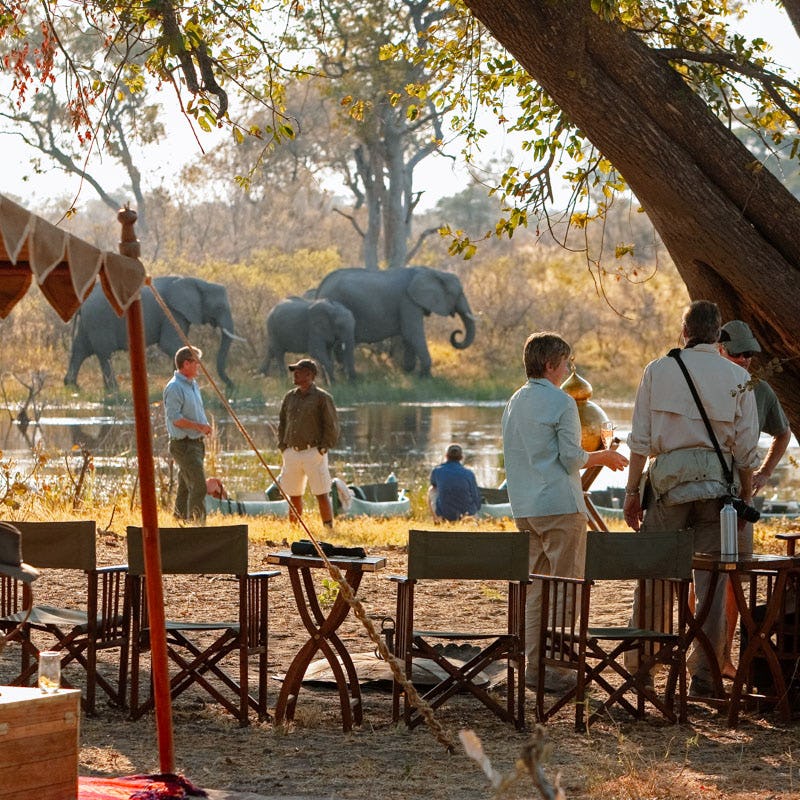Eco-tourism is all about travelling lightly, leaving no heavy footprints on the terrain you’re exploring, and staying in safari lodges that are serious about the environment, the wildlife and the communities that surround them. Exasperated by these green-washers, safari veterans Colin Bell and David Bristow set about finding the true heroes of eco-tourism across the continent. The result? Africa’s Finest, a green bible that pays homage to the eco-friendly safari lodges who truly are setting the standard for responsible and sustainable travel. We’ve listed our top 10 for you here: the only heavy footprints at these eco-friendly safari lodges are those left by the resident elephant plodding past…
1. Campi ya Kanzi, Kenya
Campi ya Kanzi could certainly teach some safari lodges a thing or two about community development. Along with the camp, owner Luca Belpietro and his wife established the Maasai Community Wilderness Trust to help take care of the thousands of Maasai landowners living in the area. Today, the trust has its own primary school with 50 teachers, a medical dispensary, and three health clinics. Landowners are also compensated for the loss of any livestock (by a lion attack or other), in return for full predator protection within the ranch. And that’s just the beginning at this extraordinary eco-friendly lodge…
2. Gibb’s Farm, Tanzania
The best bit about Gibb’s Farm is the fabulously-named ‘fundiland’, where every single waste material from the safari lodge goes to be reused, recycled and made into something beautiful. There are carpenters crafting scrap wood into handsome statues, tailors threading leftover materials into cushion covers, and (our favourite), the paper fundi, who mixes waster paper with elephant dung and turns it into a range of stationary and cards to be sold in the shop. Creative and one of our favourite eco-friendly safari lodges! We love it!
3. Meno a Kwena, Botswana
At the heart of Meno a Kwena is a commitment to the environment and people surrounding it. Since its inception in 2003, the team have vastly reduced human-wildlife conflict along the Boteti River (as important to villagers looking for water as it is to animals). For the local communities, a direct income was created through the leasing of the land, and employment and training opportunities provide at the lodge itself. Truly, a camp for travellers of an eco-friendly, sustainable mind.
4. Singita Pamushana, Zimbabwe
In the south-eastern corner of Zimbabwe, there’s a reserve called Malilangwe, and in the heart of that reserve is the exquisite Singita Pamushana safari lodge. So, why did Colin and David choose Pamushana for their list? Because this one small lodge provides almost the sole employment, educational, health and general social opportunities for every single community in the area, as well as feeding 23,000 school children daily. Simply incredible.
5. Garonga Safari Camp, South Africa
In 2009, Garonga owner Bernie Smith decided it was time to give the safari lodge a total environmental overhaul. Today, the sewerage system is a six-phase filtration extravaganza that makes waste water safe for surrounding animals to drink. For guests, the Vivreau Water System produces chilled, filtered water, the camp garden supplies a third of all Garonga’s food needs (and even that’s enriched by organic chicken litter!), and game drive vehicles are run on a clean, happy bio-fuel. That’s what we call an eco-friendly claim to fame!
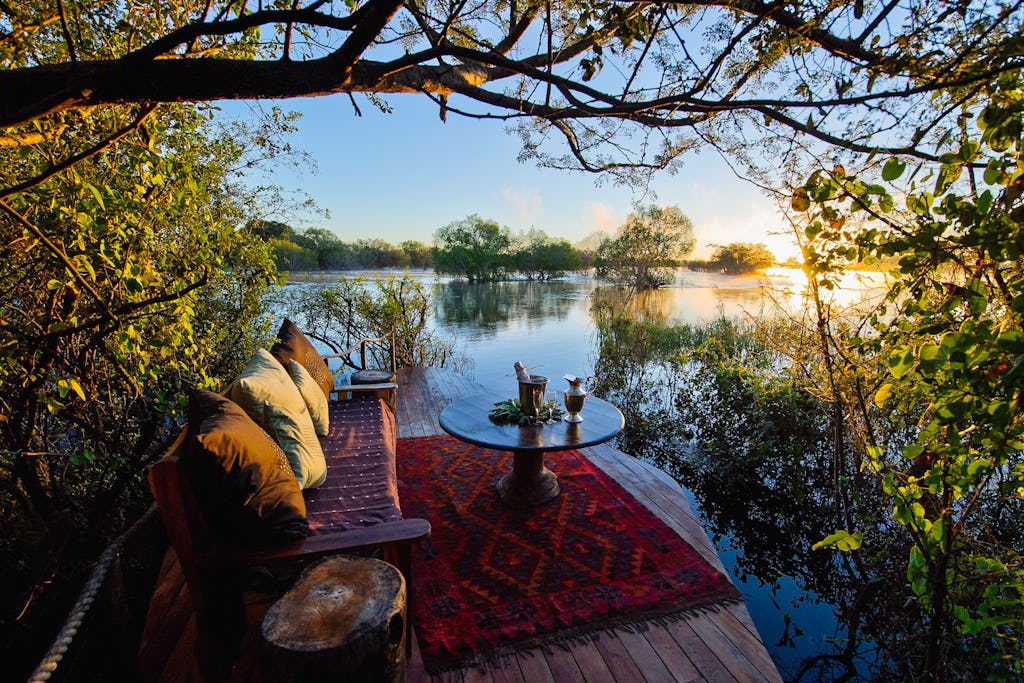
6. Sindabezi Island, Zambia
Impossibly romantic and timelessly beautiful, Sindabezi is certainly on our list of most eco-friendly safari lodges. There’s not a single kilowatt of electricity on the island, everything (and we mean everything) running instead from solar power. Wet waste is turned into compost for the juicy tomatoes and marrows in the veggie garden, and non-biodegradable waste is sent to the mainland for disposal. Oh, and the whole camp was constructed using sustainable wood from local sources. When can we visit?
7. Serra Cafema, Namibia
At Serra Cafema in Namibia’s stark but hauntingly beautiful Kaokaland, the land is leased from the local Himba people, and you’ll see their livestock grazing peacefully between the oryx and the gemsbok. Pretty much all the staff have been recruited from the local village, and management training is in progress. What do Colin and David say? “The hope is that this venture into ecotourism will give the Himba a firm foothold in the modern world, without them having to give up their cultural identity.” We couldn’t agree more.
8. Mwaleshi Camp, Zambia
In a place as absurdly remote as Zambia’s North Luangwa, it would be all too easy for safari lodges to turn to diesel-fuelled generators and sturdy, cement buildings. But not at Mwaleshi Camp. The camp is crafted each year by local artisans, using only the most local of materials – there’s not a nail or wire in sight. Floors are polished mud and roofs, thatched palm leaves, and the camp only uses solar power. There aren’t even any vehicles around either, with walking being the only activity on offer.
9. Chada Katavi, Tanzania
Located deep in the heart of the enchanting Katavi National Park, the folks at Chada have no real reason to engage with anyone else. But boy they do. On the outskirts of the park, in Kibaoni Village, they helped establish a youth centre and an environmental library to ensure that young minds understand the benefits of the magnificent wildlife area they live in. After all, if there’s one thing safari lodges across the continent must do, it’s inspire the next generation of conservationists, guides, and biologists…
10. Mumbo Island Camp, Malawi
Situated on a rocky outcrop on the crystal-clear waters of Lake Malawi, guests can get away from it all and live off the grid for a few nights in this watery retreat. Mumbo successfully succeeded at making as little of an environmental impact as possible in order to maintain the pristine nature of the island. There is no electricity, so lighting is by solar, paraffin lamps and wind-up torches. Toilets are dry composter loos and all composted material is removed from the island, buried in pits for a year and then used as great compost on their gardens on the mainland.
You can see the full list of Colin Bell and David Bristow’s eco-friendly safari lodges or buy a copy of the book Africa’s Finest, here.











